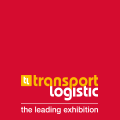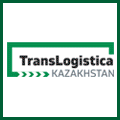
IRU welcomes the EU’s targeted amendment introducing flexibility for manufacturers to reach car and van CO2 emission reduction targets, but calls for a broader, accelerated revision to support realistic decarbonisation.
As announced in the European Commission’s Industrial Action Plan for the European automotive sector presented on 5 March 2025, today the European Commission adopted a targeted amendment to the EU Regulation on CO₂ emission performance standards for new cars and vans.
IRU welcomes the short-term compliance flexibility introduced for the 2025 target but stresses the urgent need for a broader, pragmatic revision of the Regulation.
IRU EU Director Raluca Marian said, “This flexibility is a necessary short-term fix, but it does not address the structural flaws in the regulation.
“Unrealistic targets and the exclusion of sustainable renewable fuels due to the tailpipe-only approach are major barriers. The upcoming review must deliver a practical and inclusive path forward.”
The proposed amendment allows manufacturers to calculate fleet-wide CO₂ emissions over a three-year average (2025–2027) instead of annually, providing temporary relief as electric vehicle registration rates remain lower than forecast. The flexibility aims to reduce immediate penalty risks and allow for a more gradual adjustment.
IRU supports this short-term measure, recognising the regulatory pressure it seeks to ease. However, the amendment does not resolve core structural issues that continue to undermine the effectiveness and feasibility of the current CO₂ standards.
The Commission has confirmed that the full review of the Regulation, initially foreseen for 2026, will now take place in the second half of 2025. This accelerated timeline is essential to adapt the regulatory framework to market realities and evolving decarbonisation technologies.
IRU also warns that similar issues are already emerging under the CO₂ standards for heavy-duty vehicles. With enabling conditions, such as vehicle availability, charging and refuelling infrastructure, and affordability, lagging further behind, the risk of unachievable targets is even greater for trucks and coaches.
IRU continues to call for a technology-neutral, market-based approach that fully recognises all clean transport solutions, including sustainable renewable fuels. Targets must be ambitious yet achievable, supporting the transition while maintaining the viability of road transport operations.
Next steps
The proposed amendment must now go through the EU legislative process and be approved by the European Parliament and Council.
IRU remains committed to working with EU policymakers to shape balanced, inclusive and effective climate legislation across all vehicle segments.
Source, IRU



.jpg)








